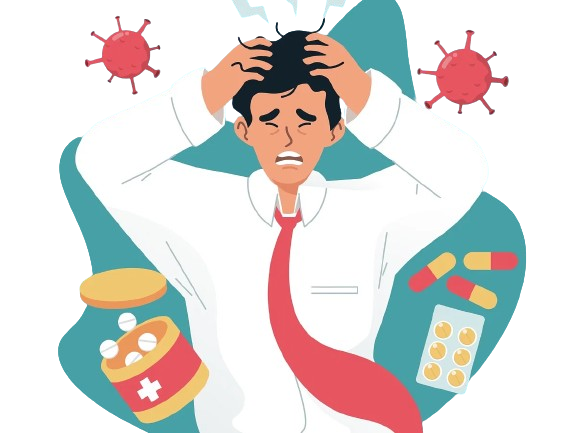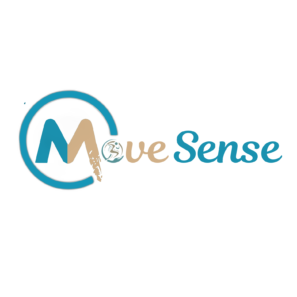Sinus Headache
Sinus Headache
A sinus headache is a type of secondary headache that results from inflammation or infection of the sinus cavities, typically due to sinusitis. The pain is caused by pressure and congestion in the sinuses, which are air-filled cavities located around the forehead, eyes, cheeks, and nose.
Characteristics
- Pain Quality: Dull, throbbing, or pressure-like pain.
- Pain Location: Commonly felt in the forehead, around the eyes, cheeks, and sometimes in the upper teeth or jaw.
- Onset: Often occurs with or following symptoms of a sinus infection or congestion.
- Duration: Can be persistent and may last as long as the underlying sinus issue is present.
Causes
Sinus headaches are caused by:
- Sinusitis: Inflammation or infection of the sinus cavities due to viruses, bacteria, fungi, or allergens.
- Nasal Polyps: Non-cancerous growths in the nasal passages that can obstruct airflow.
- Allergies: Allergic reactions leading to sinus congestion and inflammation.
- Deviated Septum: A structural abnormality in the nasal passages that can contribute to sinus problems.
Diagnosis
Diagnosis is typically based on:
- Medical History and Symptom Description: Evaluation of headache characteristics, duration, and associated symptoms.
- Physical Examination: Checking for signs of sinus congestion, tenderness, and nasal discharge.
- Imaging Studies: X-rays, CT scans, or MRI of the sinuses to assess the extent of inflammation or blockage.
- Allergy Testing: If allergies are suspected to be a contributing factor.
Prevention
Preventive measures include:
- Managing Allergies: Avoiding known allergens and using antihistamines.
- Avoiding Upper Respiratory Infections: Practicing good hygiene to prevent infections that can lead to sinusitis.
- Using a Humidifier: To keep nasal passages moist, especially in dry environments.
- Regular Nasal Hygiene: Using saline sprays or rinses to keep nasal passages clear.
Effective management of sinus headaches involves treating the underlying sinus condition and addressing symptoms to provide relief and prevent recurrence.

What are the signs and symptoms of Sinus Headache?
Your sinuses are air-filled spaces located in the bones of your forehead, cheeks, and behind your nose, and there are also sinuses in other parts of the body, including the brain. These sinuses function as drainage systems in the body.
The sinuses in your forehead, cheeks, and behind your nose are responsible for draining mucus. They can become inflamed due to allergic reactions like hay fever or infections. This inflammation increases mucus secretion, which can cause sinus blockage. Such blockages can lead to sinus pain ranging from mild to severe, affecting the forehead, below the eyes, around the cheeks, behind the nose, and even around the teeth.
Sinus headache pain can be similar to that of a migraine or tension-type headache.
To differentiate sinus headaches from other types of headaches/migraines, sufferers also experience:
- Runny nose or congestion during the headache
- Watery eyes during the headache
- Increased sinus pressure or pain in the sinuses
- Need Assistance?
(07) 5619-5588
How MoveSense will help you treat the Sinus Headache?
You may have tried various treatments in the past. Your GP might have prescribed antibiotics or suggested:
- Over-the-counter pain relievers
- Decongestant medications
- Nasal steroid sprays
- Antihistamines
- Breathing in humidified air
- Flushing the nasal cavity and sinuses with salt water
- Surgery
Despite these options, you may still experience persistent sinus headaches or even medication overuse headaches. If this is the case, have you had your neck assessed? More importantly, have you had your brainstem evaluated to determine if the cause of your symptoms originates there?
At MoveSense, we have treated numerous sinus headache sufferers using advanced techniques to identify if the neck and brainstem are the sources of the problem.
We perform a thorough examination of the upper cervical spine to assess the severity of your sensitized brainstem.
Once treatment begins, we anticipate significant improvement in 90% of our patients with sinus headaches within the first five treatment consultations.
If you suffer from chronic sinus headaches and have tried various medications without significant relief, it’s time to have your neck thoroughly examined.

Varun Gautam
Headache and migraine specialist Physiotherapist
